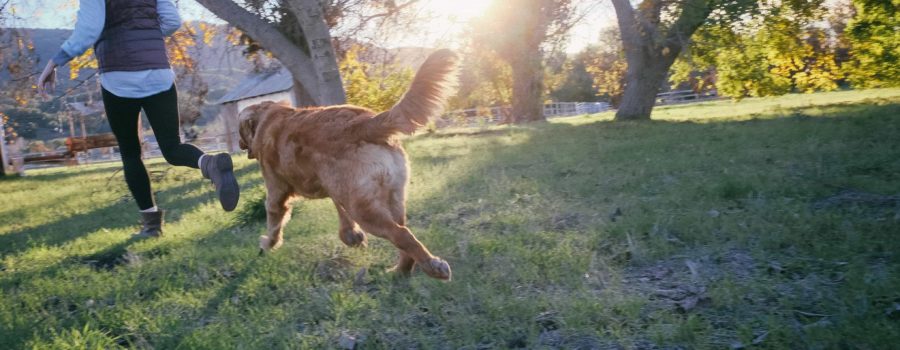As pet owners, we spend a lot of time picking up, shoveling, and generally dealing with our loved one’s excrement, or poop. Although not a glamorous aspect of pet ownership, it turns out that our pet’s feces can tell us a lot about their health, and knowing what to look for can help to identify and treat problems early.
So, let’s walk through some of the irregularities that can present in stool and what to do if you detect one of these conditions.
Loose/Soft Stool:
Loose stool is likely the most common abnormality you will encounter in your animal’s feces, although it can be hard to tell whether or not it is the harmless result of a dietary change or the harbinger of something more serious. If soft stool or diarrhea lasts for more than 3 days, or is accompanied by other symptoms (vomiting, lethargy, etc.), we recommend taking your pet in for a check-up. If, however, you are feeling nervous about your pet’s loose stool and it has only been one day, don’t hesitate to call your veterinarian and discuss the problem with one of their staff members.
For dogs with ongoing loose stool, in the absence of any other concurrently presenting symptoms, our vets may recommend switching your dog to a bland diet. Bland diets consist of 2 parts cooked white rice to 1 part of your choice of the following proteins: boneless/skinless chicken, low-fat cottage cheese, or scrambled eggs. Feed this mixture in the same quantity as you would for your pet’s regular dog food. Do not feed anything else during this process. If after several days the symptoms have resolved, you can begin to mix in normal dog food with the bland diet, increasing the quantity over 1-2 days, until your dog is fully back to eating its regular food. If the symptoms return after tapering back to normal dog food, you may want to discuss other dietary options with your veterinarian.
In some cases, loose stool can be indicative of an allergic reaction that your pet is having to some component of their diet. If your vet suspects this to be the culprit, they may recommend trying a hypoallergenic diet.
More serious causes of loose stool are intestinal parasites and giardia. These will result in long term (more than a few days) diarrhea or soft stool and you pet should always be seen by a veterinarian. The last two sections of this article will discuss two of the most common intestinal parasites and how they are treated.
Bloody Stool:
Although the presence of blood in human stool is often cause for serious and immediate concern, bloody stool is more common in animals and doesn’t always indicate a dire emergency in our pets. Nevertheless, bloody stool can be the symptom of many different things, both benign and dangerous, and it is always a good idea to contact your veterinarian so they can assess the seriousness of the situation. Your veterinarian will likely first want to know how old your pet is and whether or not they have recently eaten anything unusual. In adult dogs, blood in the stool can simply be the result of minor inflammation or a harmless dietary indiscretion (for ex., eating something new or different) and may not require a trip to the vet. On the other hand, in puppies or kittens, bloody stool is cause for concern and you should bring your young pet in right away.
Black or Tar-like stool:
A bowel movement that looks dark, sticky, and/or tar-like may be indicative of a serious problem— including internal bleeding, bacteria in the small intestines, the presence of something indigestible your pet may have eaten, an adverse drug reaction, cancer or gastrointestinal disease— and we therefore strongly recommend that your pet be seen immediately by a vet. It could be a life-threatening emergency.
Tapeworm:
Tapeworm is an intestinal parasite that gets transferred from pet to pet via fleas. The good news is that tapeworm is usually easily visible in your pet’s feces and is not an urgent problem (except in puppies/kittens). In some cases, tapeworms will still be alive and moving in your pet’s feces, making them easy to detect, or they may die and dry up, looking like a grain of rice or a sesame seed. Since tapeworm is contracted by ingesting an infected flea, the best way to prevent tapeworm is to place your pet on an effective flea preventative. Once contracted, tapeworm is a straightforward problem to fix—your veterinarian will prescribe an orally administered deworming medication which should flush out these pesky intruders. If you suspect that your pet has tapeworm, make sure to bring a stool sample in with you when you go to the vet. Tapeworm is not a problem that needs to be seen urgently unless it presents in the stool of a puppy or kitten.
Roundworm:
Similar to tapeworm, roundworm is a parasite which is often visible in feces. As opposed to the rice-like appearance of tapeworm, roundworm looks like tiny strings of spaghetti that are present throughout your pet’s stool (apologies to all spaghetti lovers). Roundworm is contracted via ingestion of an infected animal’s feces that contains still living roundworm. Medications that contain an intestinal parasite preventative (e.g. trifexis or heartgard) will protect your pet from contracting this type of parasite. As with tapeworm, roundworm is not an urgent problem (unless present in puppies/kittens) and is easy to fix with a deworming medication—just remember to bring along a stool sample when you go to the vet.
Bringing in a Stool Sample:
One of the main tools available to veterinarians to diagnose abnormal stool is lab testing. If you notice any of the irregularities discussed below and plan to bring your pet into the vet, you should collect (using a normal plastic pet bag is fine) and bring to the appointment a fecal sample. The fresher the stool sample, the better. If you know that you won’t be able to make it to the veterinarian within 2 hours of your pet depositing the sample, it is best to place it in the refrigerator to maintain its quality for lab testing.






Leave a Reply
Your email is safe with us.